All the President’s Mentions
Published:
Presidents hold a unique position as the head of the executive branch and a de-facto party leader. In this role, they nationalize and polarize politics. For example, Gallup polling shows people like the Affordable Care Act more than “Obamacare.”
(via https://news.gallup.com/opinion/polling-matters/169541/name-affordable-care-act-obamacare.aspx)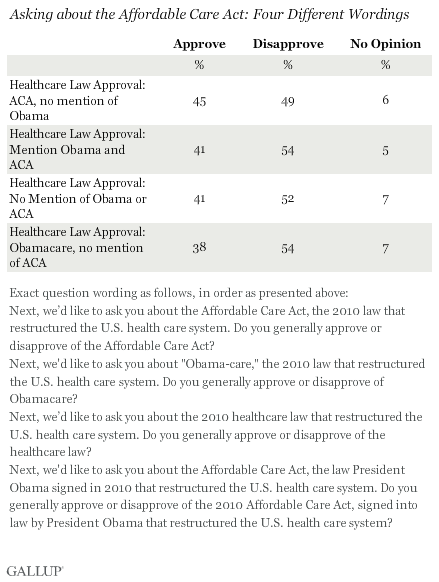
And that provisions of the bipartisan infrastructure bill were more popular when Biden wasn’t mentioned versus when he was
(via https://chs-inc.com/soonersurveyvol33no3-2/ and FiveThirtyEight who cited this poll).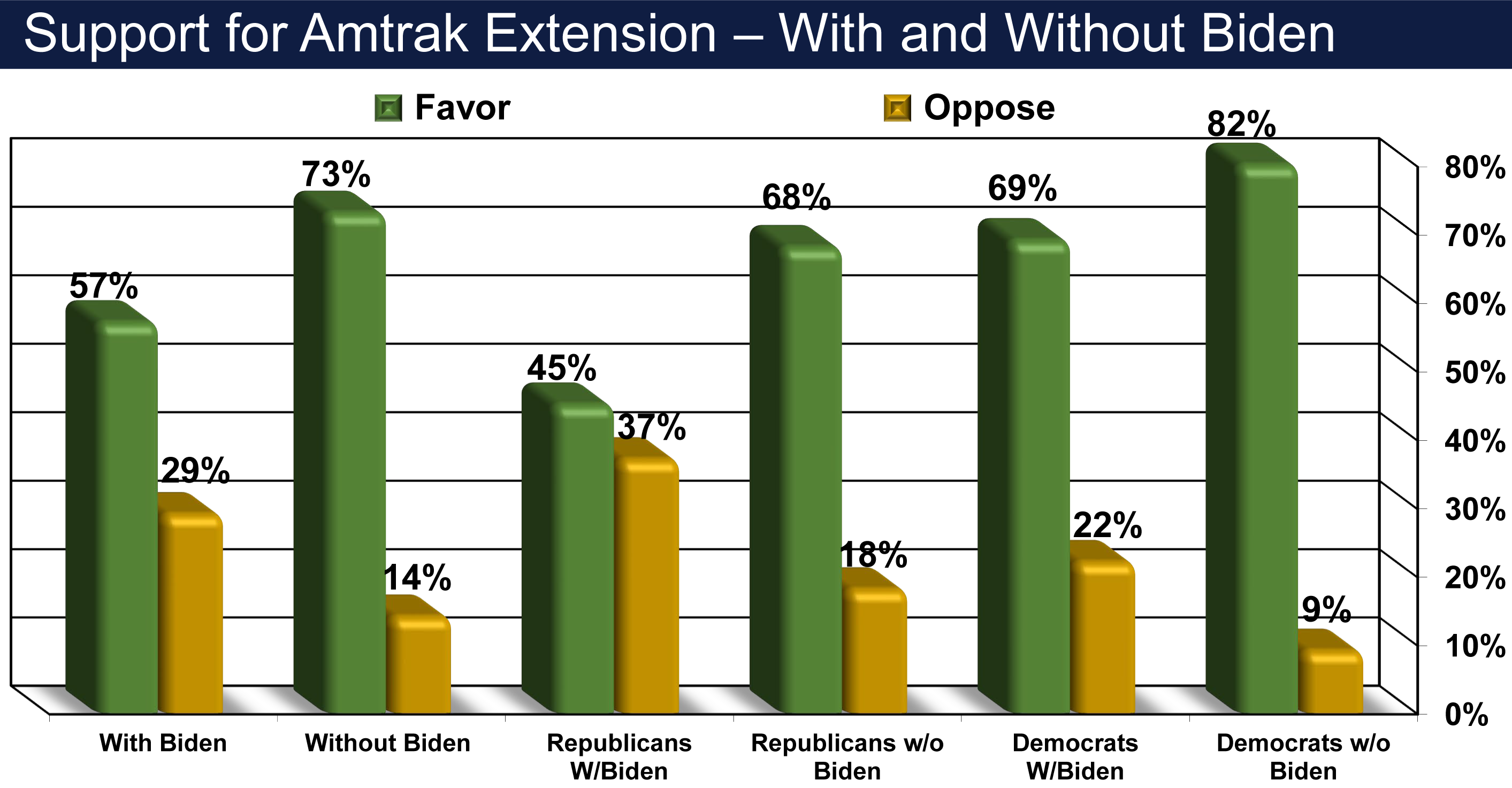
What incentives does the president’s symbolic power create for Members of Congress? I argue that lawmakers, particularly those in the non-presidential party, reference the president as a negative cue to polarize their core partisan constituents and activate negative partisanship.
I support this argument in two parts. First, using floor speeches given in the House and Senate (via Gentzkow, Shapiro and Taddy) between 1973-2016 and a within-member panel, I show that lawmakers reference the president more often when in the out-party.
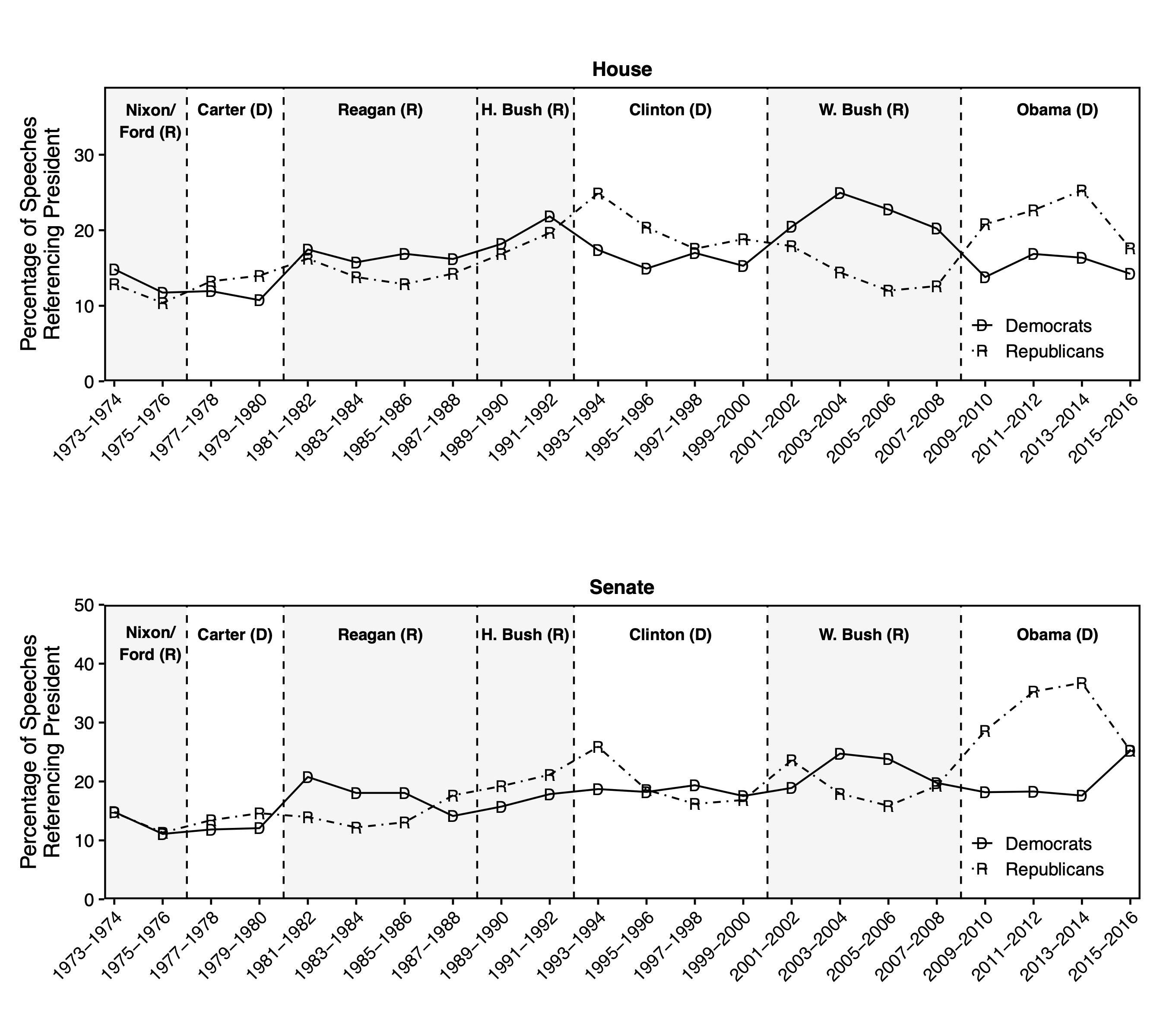
I also show that out-party (in-party) lawmakers reference the president less (more) as the president’s support in a constituency increases.
Then, using data from Trussler (2022), I show that as media nationalizes in a district (as measured using broadband internet access, 2001-2010), House out-partisans step up their presidential referencing behavior (as compared to when they are in the in-party).
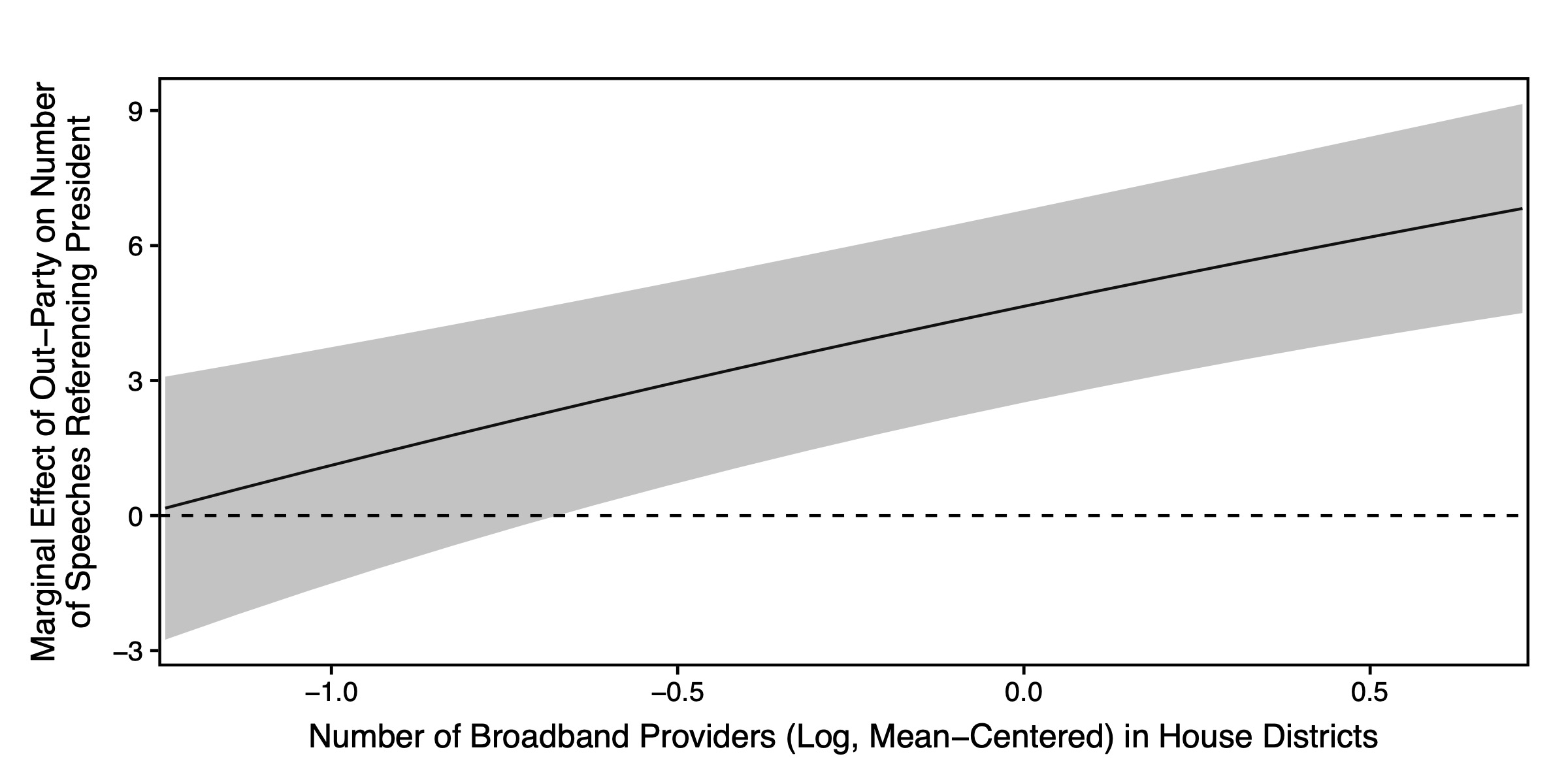
But how do constituents react? I run a survey experiment and find that when a republican references Biden in a speech, republican respondents increase support for that senator and believe it is more important to stand for one’s principles than compromise.
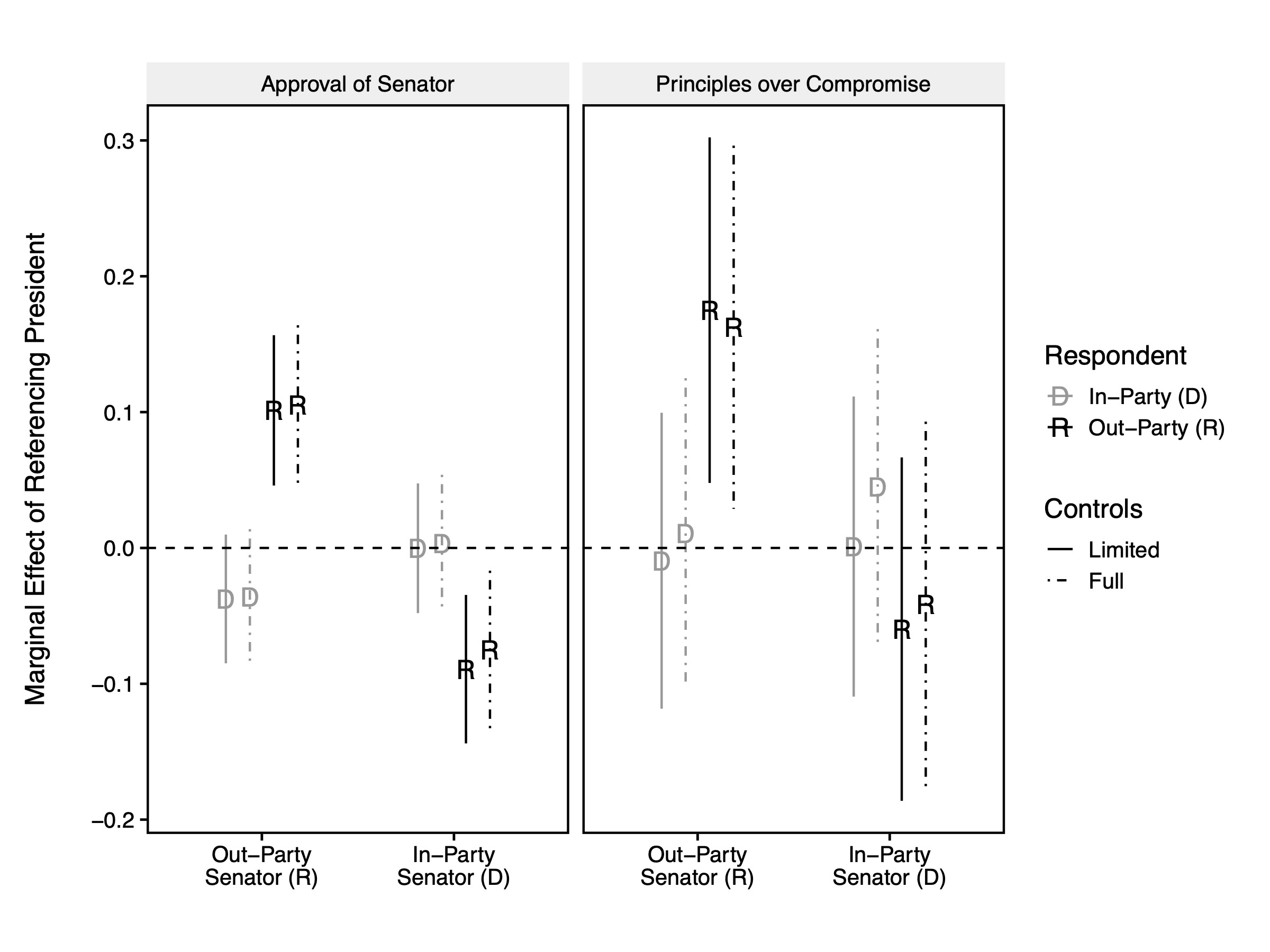
However, Democrats do not increase their support for a democratic senator who references Biden.
This research highlights the president’s role as a nationalizing symbol in congressional rhetoric—one out-partisans use strategically to polarize their co-partisan constituents.
Ultimately, the findings are important for understanding how legislators respond to, and reflect, conditions of nationalization and negative partisanship within the institution of Congress.
This blog post is based on my 2023 article “Presidential Cues and the Nationalization of Congressional Rhetoric, 1973–2016” in the American Journal of Political Science.